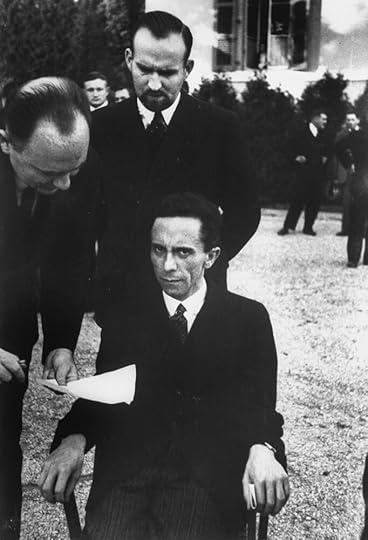What do you think?
Rate this book


296 pages, Hardcover
First published January 1, 1947
Emotion had to suppress the intellect and itself surrender to a state of numbing dullness without any freedom of will or feeling; how else would one have got hold of the necessary crowd of executioners and torturers? What does a perfect group of followers do? It doesn’t think, and it doesn’t even feel any more – it follows.
It’s not simply that language composes poetry and thinks for me, it also drives my feelings, it directs my entire spiritual being, the more self-evidently, the more unconsciously I give myself up to it.Actually, I should have said “the lesson that I deemed most important for me”, because using a superlative like the one above and stating it as a fact is exactly one of the things the Nazis did to steer the thoughts and minds of the stupid masses.


"...everything you are asking is based on reason...it's something you have to feel, and you must abandon yourself to your feelings, and you must always focus on the Fuhrer's greatness, rather than the discomfort which you are experiencing at present..."Klemperer thinks that another characteristic of the LTI is needless obfuscation:
Every autodidact shows off with foreign words, and somehow they always manage to take their revenge on him. But one would be doing the Fuhrer an injustice if one were to explain his fondness for foreign words solely in terms of vanity and an awareness of his own shortcomings. What Hitler knows frighteningly well...is the psyche of the...masses, who are to be kept from thinking at all costs. A foreign word impresses all the more the less it is understood; in not being comprehended, it confuses and stupefies and, in addition, drowns out thought.My friend Billy already quoted from this page in his review , but I think the point is worth reiterating. And if clarity doesn't sound like an ambitious enough goal for the use of language, try it sometime. It's not that easy (just read a few of my reviews).